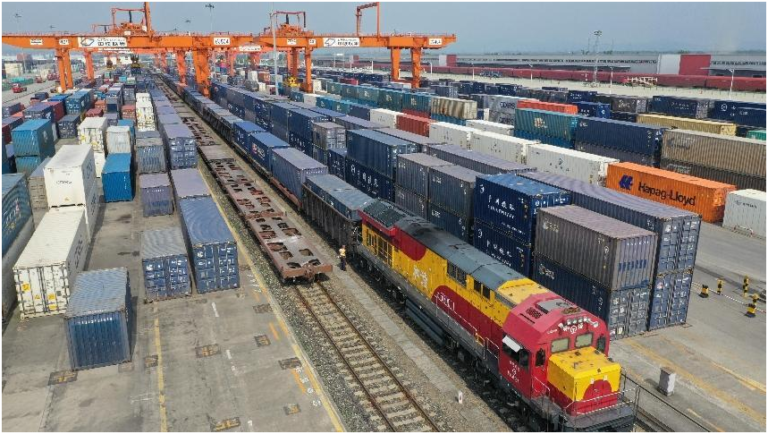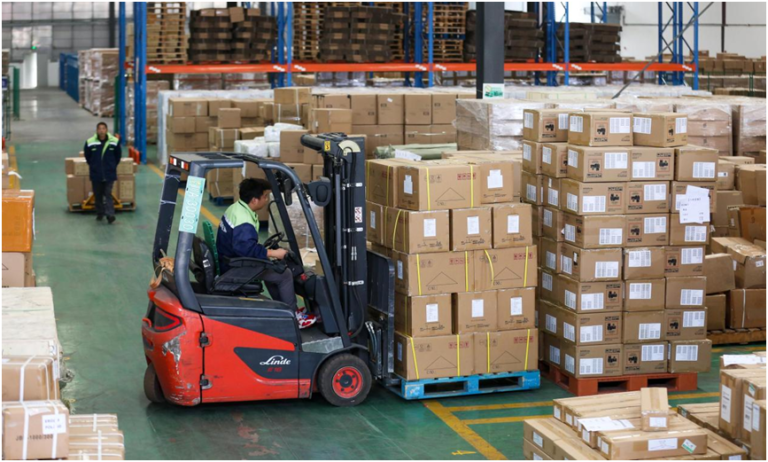
By Luo Shanshan, People’s Daily
Twenty-seven more cities and regions in China were recently approved by the State Council to set up cross-border e-commerce pilot zones. It brought the overall tally of the pilot zones to 132, which cover foreign trade powerhouses and municipalities, as well as cities that see obvious advantages and prospering development in the foreign trade sector.
Cross-border e-commerce pilot zones aim to generate replicable practices and experiences for the development or cross-border e-commerce through institutional innovation, management innovation, service innovation and coordinated development.
They are expected to blaze a trail in standard making, operation flow, monitoring models and information construction in every link of cross-border e-commerce, including transaction, payments, logistics, customs clearance, tax refund and settlement of exchange.
Previously, China had set up 105 cross-border e-commerce pilot zones in 30 provincial-level regions in five batches. These pilot zones have facilitated rapid development of the industry.
According to statistics released by the General Administration of Customs, China’s cross-border e-commerce volume soared tenfold over the past five years.In 2021 alone, the country’s cross-border e-commerce imports and exports climbed 15 percent year on year to 1.98 trillion yuan (about $311 billion).
China has been accelerating the development of cross-border e-commerce pilot zones in the recent years, trying to set up the six major systems of information sharing, financial services, intelligent logistics, e-commerce credit, statistical monitoring and risk prevention and control, and building a policy framework centering on the “single window” system and comprehensive demonstration parks.
When approving the 27 cities and regions to establish cross-border e-commerce pilot zones, the State Council emphasized giving full play to the role of cross-border e-commerce in upgrading traditional industries and promoting industrial digitalization, so as to ensure healthy, sustained and innovative development of the sector.

In the newly established pilot zones, value-added and consumption taxes for cross-border e-commerce retail exports will be exempted, and new policies will be introduced, such as the supervision over cross-border e-commerce retail imports.
“The Ningbo China Cross-Border E-Commerce Comprehensive Pilot Area was established in 2016. Under the new policies introduced, we started building public overseas warehouses and providing logistics services for cross-border e-commerce enterprises,” said Zhou Jian, general manager of Discovery International Logistics based in Ningbo, east China’s Zhejiang province.
Now the company’s overseas warehouses cover a total area of 180,000 square meters and over 50,000 parcels are being handled every day. They enable the company to provide professional sea transportation, air transportation, express delivery, and drop shipping services.

According to Zhou, the company is further expanding its overseas warehouses as more cross-border e-commerce pilot zones are built across the country. “Jingdezhen of Jiangxi province will build a pilot zone this time, and we hope we can introduce our advanced experiences there to provide one-stop services for cross-border merchandisers in the central and western regions, and introduce more Chinese products to overseas markets,” the general manager said.
Next, the cities and regions to build new pilot zones will make and implement their respective work plans based on the features of local foreign trade industry and their own industrial structures, and improve the assessment and withdrawal mechanisms to ensure survival of the fittest.
Besides, they will also improve supportive policies, optimize the list of cross-border e-commerce retail imports, facilitate the management of returns and exchanges of cross-border e-commerce retail exports, and make guidelines on intellectual property rights protection in the cross-border e-commerce industry.










